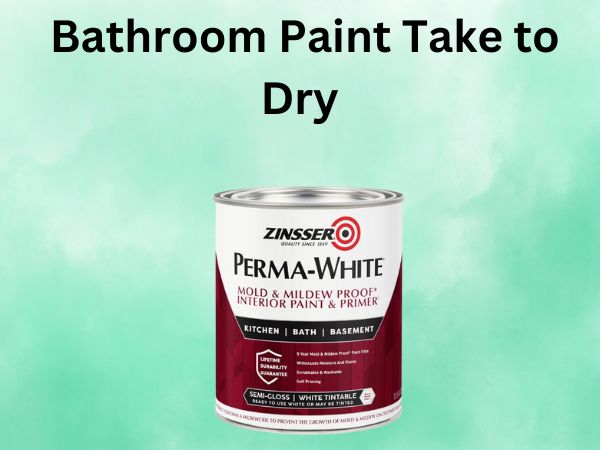How Long Does Bathroom Paint Take to Dry? A Comprehensive Guide
Have you ever stood in your freshly painted bathroom, wondering when you can finally hang that new towel rack or take a shower? Paint drying times can feel like watching paint dry—quite literally! The truth is, bathroom paint isn’t just about slapping color on walls; it’s a precise process that requires patience and understanding.
Table of Contents
Factors Affecting Paint Drying Time
Several crucial factors influence how quickly your bathroom paint will dry. Let’s break them down:
Temperature and Humidity Impact
Imagine your paint as a temperamental artist. Temperature and humidity are its mood managers. In ideal conditions (around 70°F with 50% humidity), paint typically dries faster. High humidity? Expect longer drying times. Cold temperatures? Your paint will take its sweet time settling.
Paint Type Variations
Not all paints are created equal. Each type has its own personality and drying rhythm.
Different Types of Paint and Their Drying Times
Water-Based (Latex) Paint
Water-based paints are the social butterflies of the painting world—quick to dry and easy to work with.
First Coat Drying Time
Typically, a first coat of latex paint will dry to the touch in about 1 hour. But don’t be fooled—touch-dry doesn’t mean fully cured.
Recoat and Full Cure Timeframes
You’ll want to wait around 4 hours before applying a second coat. Full curing can take up to 30 days, so treat your freshly painted bathroom with kid gloves during this period.
Oil-Based Paint
The distinguished cousin of latex paint, oil-based paints march to a different drum.
Drying Characteristics
These paints are slower, often taking 6-8 hours to dry to the touch. They’re like that friend who always takes longer to get ready.
Recommended Wait Times
For oil-based paints, wait at least 24 hours between coats and expect full curing in about 7 days.
Bathroom-Specific Painting Considerations
Ventilation Importance
Think of ventilation like oxygen for your paint. Good airflow is crucial in bathrooms, which are naturally humid environments. Use exhaust fans, open windows, and consider a portable fan to speed up drying.
Moisture Resistance
Bathrooms are war zones for paint. Choose moisture-resistant, specifically designed bathroom paints that can handle steam, splashes, and humidity.
Step-by-Step Drying Process
Preparation Techniques Proper preparation is like building a solid foundation for a house. Clean walls, sand rough spots, and use a primer designed for bathroom environments.
Application Methods Use thin, even coats. Think of it like spreading butter on toast—too thick, and it’ll take forever to set.
Common Mistakes to Avoid
- Painting in high humidity
- Not allowing sufficient drying time between coats
- Using the wrong type of paint
- Neglecting proper ventilation

Tips for Faster Drying
- Maintain room temperature around 70°F
- Use a dehumidifier
- Increase air circulation
- Choose quick-drying paint formulations
- Apply thin, even coats
When to Use the Bathroom After Painting
While paint might feel dry to touch, wait at least 48-72 hours before full bathroom use. It’s like letting a fine wine breathe—patience yields the best results.
FAQs
- Can I speed up paint drying with a hairdryer?
No, direct heat can cause uneven drying and potentially damage the paint finish.
- How do I know if my bathroom paint is fully dry?
Check for a uniform, non-tacky surface and ensure no color transfer when lightly touched.
- What’s the best time of year to paint a bathroom?
Spring or fall, with moderate temperatures and lower humidity, are ideal painting seasons.
- Can I shower immediately after painting?
Wait at least 3-4 days to prevent moisture affecting the paint’s curing process.
- Do different paint sheens affect drying time?
Slightly. Matte finishes typically dry faster than glossy paints, but the difference is minimal
Conclusion
Painting a bathroom isn’t just a task; it’s an art form. Understanding drying times helps you achieve a perfect, long-lasting finish. Patience is your best tool in this process.


![Levoit vs Dyson Air Purifiers [A Comprehensive Comparison]](https://bathroomexplorer.com/wp-content/uploads/2025/05/levoit-vs-dyson-air-purifiers.jpg)
![What Is The Best Bath Salts for Relaxing [In 2025]](https://bathroomexplorer.com/wp-content/uploads/2025/01/Best-Bath-Salts-for-Relaxing.jpg)
![What Is The Best Dehumidifiers Under $200 [In 2025]](https://bathroomexplorer.com/wp-content/uploads/2025/05/best-dehumidifier-under-200.jpg)
![How to Reset Your Aroeve Air Purifier [Complete Guide]](https://bathroomexplorer.com/wp-content/uploads/2025/04/how-to-reset-air-purifier-aroeve.jpg)